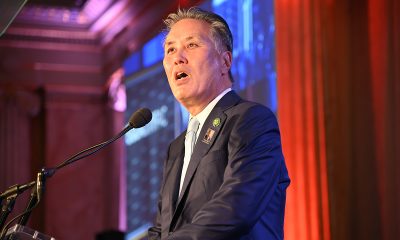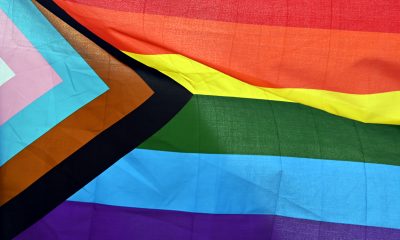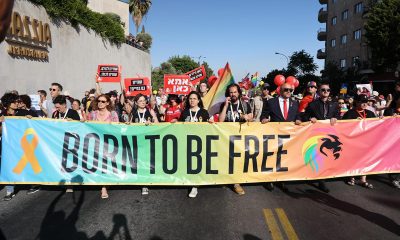Africa
Uganda lawmaker: International agreement has ‘hidden clauses’ to promote homosexuality
Deputy Parliament Speaker Thomas Tayebwa made comment at Mozambique conference
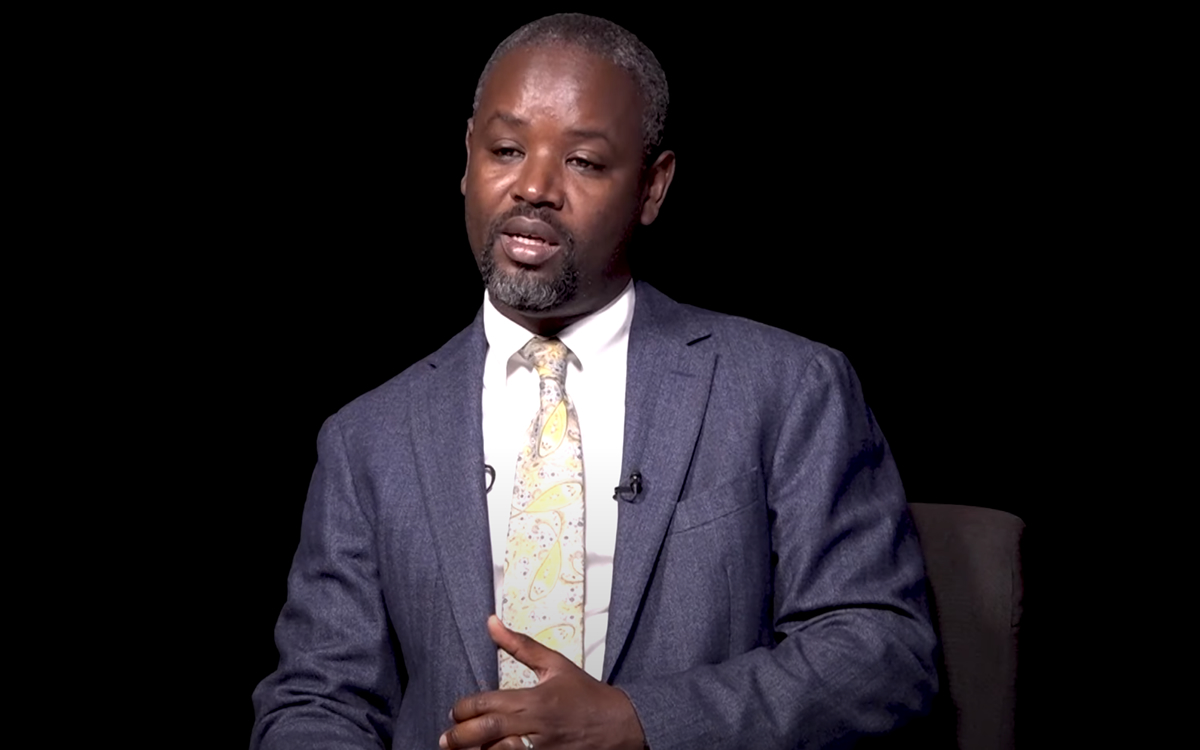
Several LGBTQ and intersex rights groups in Uganda have sharply criticized Deputy Parliament Speaker Thomas Tayebwa’s assertion that an agreement between the European Union and the Organization of African, Caribbean and Pacific States has “hidden clauses” designed to promote homosexuality.
Tayebwa made the remarks during the 42nd session of the Organization of African, Caribbean and Pacific States (OACPS) — EU Joint Parliamentary Assembly that took place in Maputo, Mozambique, from Oct. 29-Nov. 2.
“We have discovered that with the Cotonou Agreement — an agreement between the EU and OACPS based on three complementary pillars: Development cooperation, economic and trade cooperation and the political dimension — there are hidden clauses concerning human rights,” said Tayebwa. “Clauses to do with sexuality, promotion of LGBT or homosexuality and clauses to do with abortion. We are a society that is not ready for homosexuality and we are a society that is not ready for abortion. It can never be accepted in Uganda.”
“It’s not a surprise to me and most of the 2SLGBTQIA+ community at large in Uganda that the deputy speaker of Parliament made such homophobic comments because the government he represents is homophobic too,” said Happy Family Uganda Executive Director Iga Isma. “According to me, he has no right to think about our own lifestyle. Everyone lives a life that they naturally want. If someone doesn’t eat meat, it does not mean that everyone doesn’t. I am in full support of donor countries to stop funding African countries that fail to legalize same sex relationships however, we might be affected too.”
Pastor Ram Gava Kaggwa from Adonai Inclusive Christian Ministries, who is the executive director of Wave of Legacy Alliance Initiative Uganda, said sexual orientation does not have anything to do with whether one is African or not.
“Sexual orientation totally differs based on personal desires and wishes, it’s time to change the biased perspective on our sexual differences, just because you are practicing a different sexual narrative does not necessarily mean the other is wrong otherwise we are bound to see the spread of gender-based violence due to differences in sexual identity which may and can arise from hate speech spread through the heteronormative narrative which is taught in a manner that does not create room for respect of sexual differences,” said Kaggwa. “It is important to acknowledge the differences, variations and diversities of the community and modern-day society and respect each other regardless of such differences for we are all human and this is what exactly bonds us regardless of the different beliefs and values embodied in us.”
Kaggwa further encouraged lawmakers in Uganda and across Africa “to let and affirmatively acknowledge the rights and existence of 2SLGBTQIA+ persons and their rights at a common law level.”
Buwande Anthony, executive director of the Uganda Youth Society for Human Rights, said Tayebwa does not speak for Africa since African countries are sovereign states with different legal systems.
“The remarks by the deputy speaker of the Parliament of Uganda can only be attributed to hypocrisy that is normally exhibited by government officials during overseas tours, if not, it was an act of ignorance of the provisions of the Constitution of Uganda,” noted Anthony. “Article 24 of the Ugandan Constitution and the Article of the African Charter on Human and Peoples rights provides against inhuman and degrading treatment. The above provisions have laid a foundation against any enactment by the state or individual initiatives against violation of individual human rights of citizens and non-citizens in Uganda.”
“Furthermore, Hon. Thomas Tayebwa cannot purport to speak for Africa since African countries are sovereign States which are governed by different legal dispensations, and whereas some African countries have moved a notch higher to respect their citizens’ human rights, others are still slow and struggling,” he added. “Therefore, it can only be fair that he speaks for Uganda where he is deputy speaker of Parliament.”
Uganda is among the African countries in which consensual same-sex sexual relations remain criminalized.
President Yoweri Museveni in February 2014 signed into law a bill that sought to impose a life sentence upon anyone found guilty of repeated same-sex sexual acts. The Obama administration subsequently cut or redirected aid to Uganda and announced a travel ban against Ugandan officials responsible for human rights abuses. The World Bank also postponed a $90 million loan to the Ugandan government after Museveni signed the Anti-Homosexuality Act.
The Ugandan Constitutional Court subsequently struck down the law.
Daniel Itai is the Washington Blade’s Africa Correspondent.
Africa
Lesbian South African MP named to country’s new Cabinet
Steve Letsike won a seat in the National Assembly on May 29
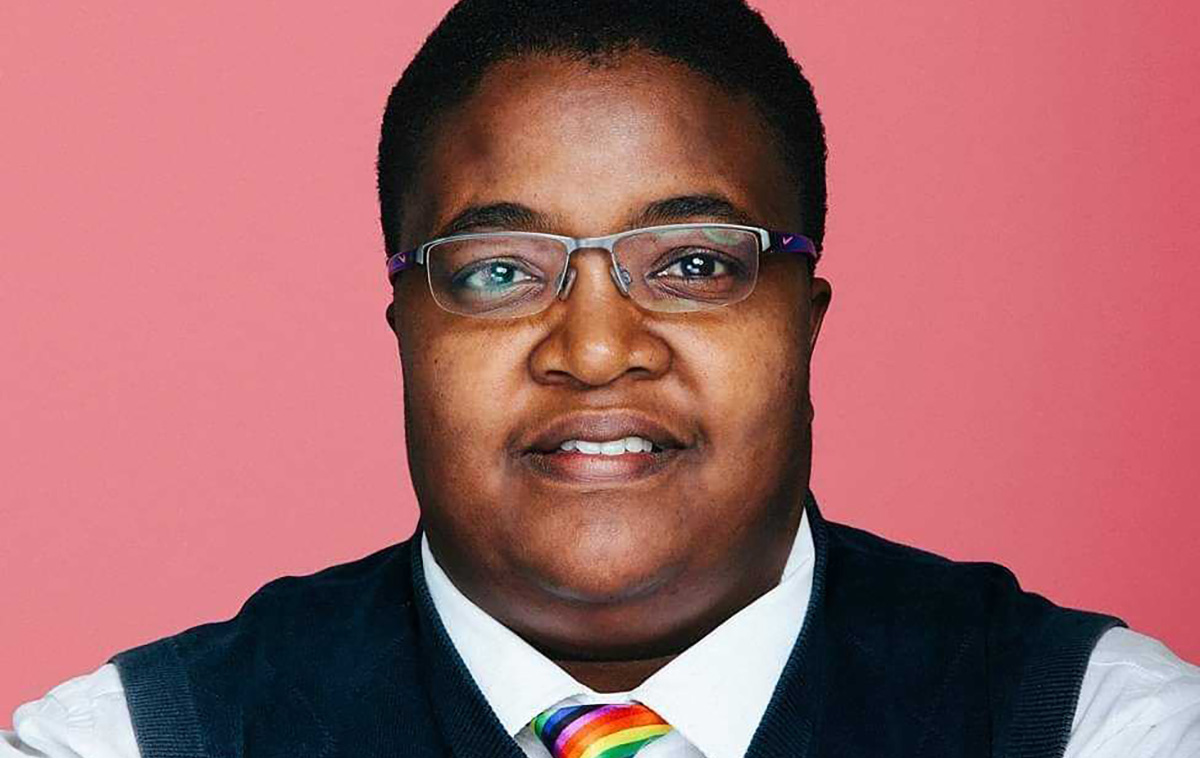
South African President Cyril Ramaphosa on Sunday appointed lesbian MP Steve Letsike to his Cabinet.
Letsike, founder of Access Chapter 2, a South African advocacy group who is a member of the African National Congress that Ramaphosa leads, will be the country’s deputy minister of women, youth, and people with disabilities.
Letsike won a seat in the South African National Assembly in national and provincial elections that took place on May 29.
The ANC lost its parliamentary majority that it had had since Nelson Mandela in 1994 won the South African presidency in the country’s first post-apartheid elections. Ramaphosa on Sunday announced Letsike and other new Cabinet members after the ANC and nine other parties agreed to form a National Unity Government.
The Washington Blade has reached out to Letsike for comment.
Africa
Congolese justice minister orders prosecutor general to arrest LGBTQ allies
Constant Mutamba issued directive on June 15, implementation unclear
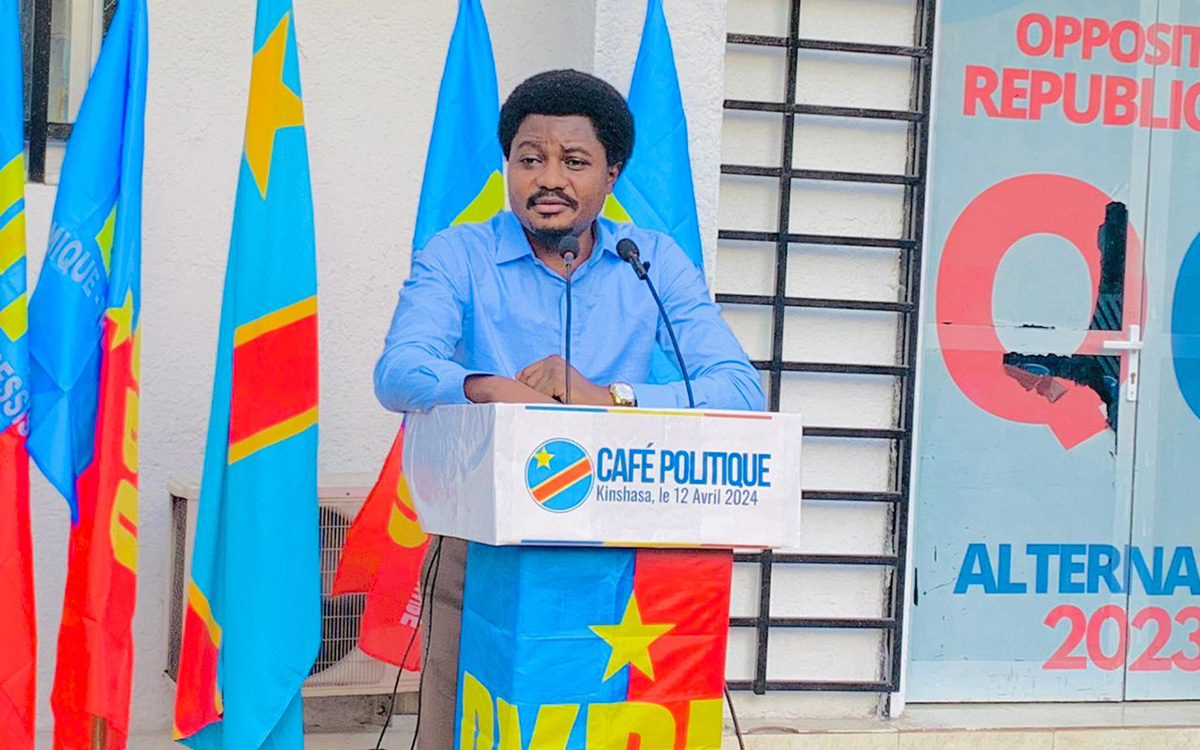
Congolese Justice Minister Constant Mutamba has instructed his country’s prosecutor general to arrest LGBTQ allies.
The newly appointed justice minister in a June 15 communique said the prosecutor general should initiate legal proceedings against people who advocate for the LGBTQ community in Congo.
Although same-sex marriages are constitutionally prohibited, there is currently no law that criminalizes consensual same-sex sexual relations. The communique has raised a lot of eyebrows from social and LGBTQ activists who are asking on what grounds Mutamba issued the communique.
“He could have started by initiating a bill in this direction, but in the current Congolese legislation he is missing the point,” said Jean Claude Katende, a Congolese human rights activist who is the president of the African Association of Human Rights. “If he wants to repress homosexuals, he must initiate a law which must make this behavior an offense and have it punished. He will be arrested for complicity in arbitrary arrests. The constitution is clear, no one can be prosecuted for an act which does not constitute an offense.”
Khelver Hermano, a Congolese social commentator, said the law should not be interpreted based on one person’s emotions.
“LGBT marriage is already not applied in the DRC but the minister wants to incarcerate those who do it informally without a legal basis,” said Hermano. “The law is not interpreted according to our will.”
“Does the penal code in the DRC recognize polygamy? Why don’t we arrest all these known polygamists?” asked Hermano. “Just as polygamists are not prosecuted, we cannot do so against LGBT people.”
Many Congolese people, however, have welcomed the communique, arguing same-sex relations are un-African and unorthodox.
Article 172 of the country’s penal code states a person “who commits a moral crime by exciting, facilitating or promoting to satisfy the passions of others, debauchery or the corruption of persons of either sex under or apparently under the age of 21 years shall be punishable by a prison term of three months to five years or a fine.” Article 176 says a person “who engages in activities against public decency shall be punishable by a prison term of eight days to three years and/or a fine.”
Although not entirely applicable, the prosecutor general can use these two penal code articles to initiate the arrests — the country in recent years has seen some arrests of LGBTQ people.
The June 15 communique is not the first time Mutamba has come out against the LGBTQ community.
Mutamba earlier this year introduced a bill that would criminalize acts of homosexuality. The proposal received widespread support, particularly on social media where many Congolese people described it as a turning point for the country and for the continent at large.
Although parliament has not formally debated the bill, activists are concerned it will pass without many major objections because most MPs have previously said they do not support the LGBTQ community. It remains unclear how the prosecutor general will executive Mutamba’s communique.
Africa
Prominent South African activist elected to country’s parliament
Steve Letsike founded Access Chapter 2

A prominent South African LGBTQ activist has won a seat in the country’s parliament.
Steve Letsike, a lesbian woman who founded Access Chapter 2, a South African advocacy group, is a member of the African National Congress. She is also part of the ANC’s National Executive Committee that determines the party’s direction.
Letsike won a seat in the South African National Assembly in national and provincial elections that took place on May 29.
The ANC lost its parliamentary majority that it had had since Nelson Mandela in 1994 won the South African presidency in the country’s first post-apartheid elections. MPs earlier this month re-elected President Cyril Ramaphosa after the ANC invited the Democratic Alliance and other parties to form a Government of National Unity.
Letsike in a statement to the Washington Blade described her election as “a milestone for the people of South Africa, and also affirmative of our party’s posture that is inclusive and intention to transformation agenda.”
“I am not in parliament for myself but the people that trusted the ANC to send individuals that will put people first,” said Letsike. “In that cohort that includes the LGBTI people like myself. Rooted in the teaching of a just society, that seeks equality and believes in the rule of law. That demand on developmental agenda from a queer lens and clear priorities of the people is important.”
“I am delighted by this task, trust and hope for our people,” she added.
-

 Canada1 day ago
Canada1 day agoToronto Pride parade cancelled after pro-Palestinian protesters disrupt it
-

 Theater4 days ago
Theater4 days agoStephen Mark Lukas makes sublime turn in ‘Funny Girl’
-

 Baltimore3 days ago
Baltimore3 days agoDespite record crowds, Baltimore Pride’s LGBTQ critics say organizers dropped the ball
-

 Sports4 days ago
Sports4 days agoHaters troll official Olympics Instagram for celebrating gay athlete and boyfriend

